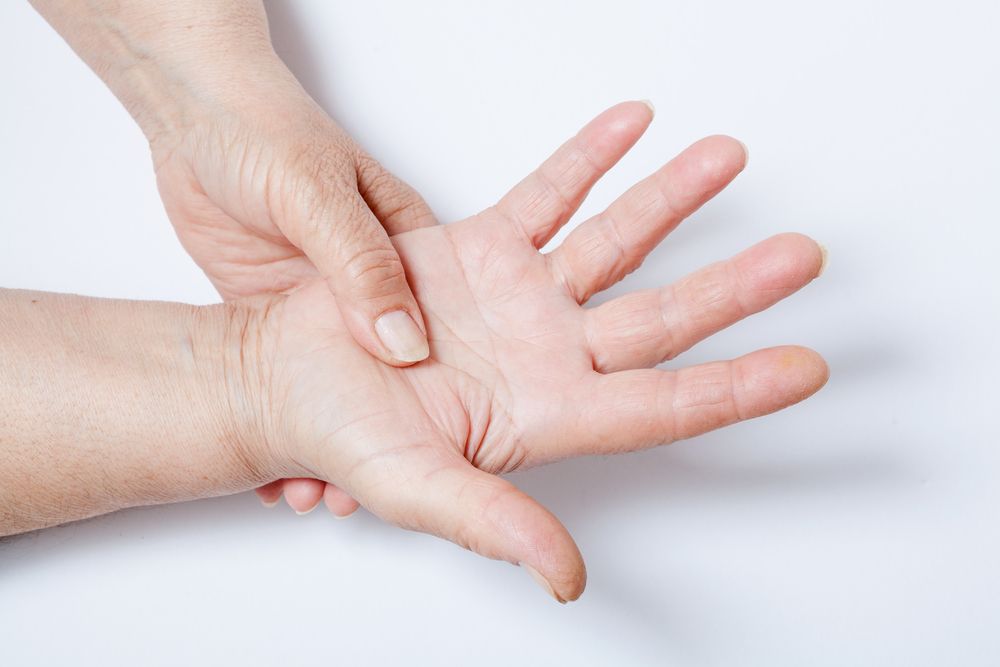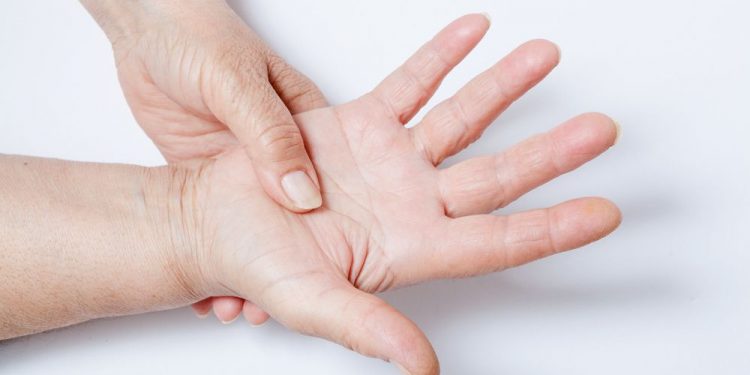Scleroderma is a chronic (long-term) disease that can affect the skin, joints and internal organs. It is a type of autoimmune disease, meaning that your immune system is mistakenly attacking the body’s own tissues.
It’s not clear why scleroderma happens, but doctors believe that the immune system becomes overactive in some people. This can cause cells in the connective tissue to produce too much collagen, which causes scarring and thickening.
Symptoms vary from person to person, but they generally include thickening and hardening of the skin around your fingers and hands, along with discoloured patches of thickened or hardened skin on your chest, arms and face. There may also be a line or band of thickened tissue on the chest, arms or legs and small white chalky deposits of calcium under your skin on your fingertips, knees or elbows.
The condition can lead to ulcers in the skin. These can be painful, numb or red, and occur more often in the fingers, toes and palms of your hands. The small blood vessels in these areas, called phalanges, can contract involuntarily and make your toes numb or blue (Raynaud’s phenomenon).
Your doctor may also recommend treatments to reduce swelling and pain, and medications to lower your blood pressure or dilate your blood vessels. You may also be prescribed antibiotic ointments to help clear up skin lesions. Stomach acid reducers and over-the-counter pain relievers can also be recommended.
Physical and occupational therapy can be helpful for patients with scleroderma, since they have problems with grip strength and movement of the hands. Therapists can fashion splints or braces for the hands to improve function and reduce the risk of developing digital ulcers, which are open sores on the fingertips.

Dental care is also important for people with scleroderma, since tooth decay and mouth injuries can develop. Teeth can become smaller and narrower and your mouth may not produce enough saliva to keep your teeth clean.
Digestive symptoms can also develop, especially heartburn or trouble swallowing. Your doctor can test the lining of your esophagus and the walls of your intestine to see how well they are functioning. They can also perform an endoscopy, which stretches your throat and looks at the muscles in your esophagus.
Other tests that can be used to diagnose scleroderma are X-rays and electrocardiograms. X-rays can detect changes in bone and soft tissues, while an electrocardiogram measures the electrical activity of your heart.
The heart, lungs and kidneys can be affected by scleroderma as well. If left untreated, these complications can be life-threatening.
If your doctor suspects that you have scleroderma, they will do a series of tests to confirm the diagnosis and to determine which organs are affected. They may do a chest X-ray to check for lung damage and an electrocardiogram (ECG or EKG) to examine the electrical activity of your heart.
Your doctor can refer you to a specialist who specialises in rheumatology for further testing and treatment if needed. The specialist will usually prescribe anti-inflammatory drugs, such as methotrexate and cyclophosphamide, that suppress your immune system and can reduce symptoms. They will also prescribe immunosuppressants that can reduce swelling and joint pain. These medicines will need to be taken regularly, but you may be able to stop taking them after your scleroderma has been under control.









